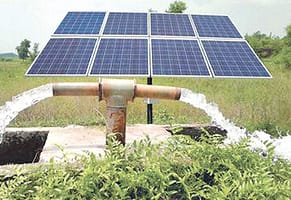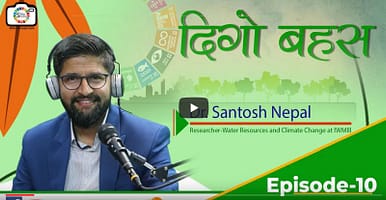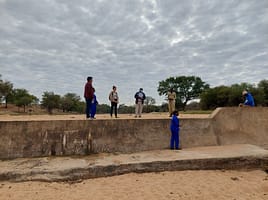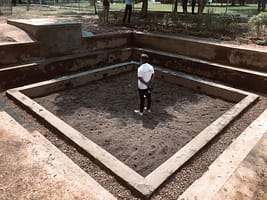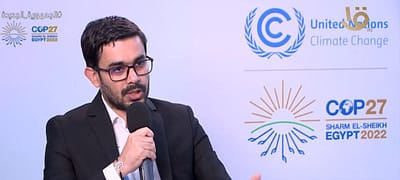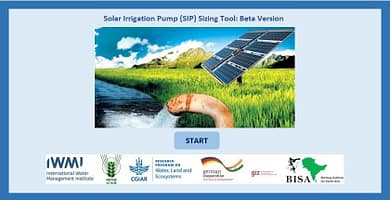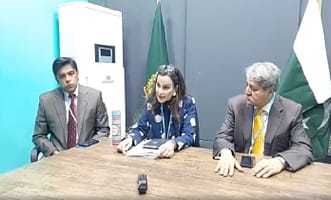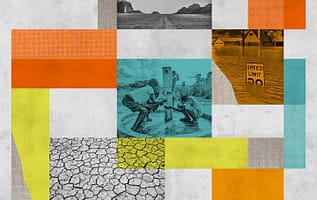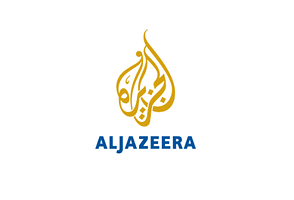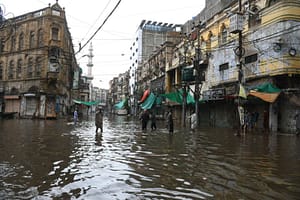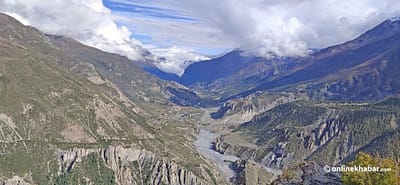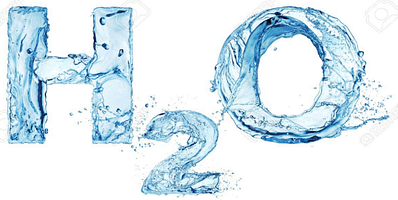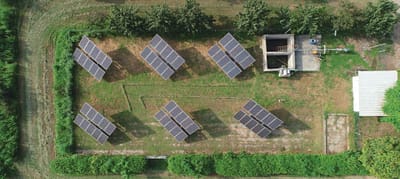IWMI organizes training workshop on gender equality and social inclusion for integrated water resources management
The International Water Management Institute (IWMI) organized a two-day training workshop on Gender Equality and Social Inclusion (GESI) for Integrated Water Resources Management (IWRM) in district Okara.
IWMI builds capacity on the application of GPS data collection tools and RS/GIS mapping
On a workshop in Pakistan, IWMI trained officials from Punjab Irrigation Department and On Farm Water Management, faculty and students from University of Okara and University of Agriculture Faisalabad.
Migrating from Droughts: A Pathway for Rural Community Response to Water Scarcity
Water is scarce in most communities in the Upper West Region (UWR) of Ghana, and the scarcity is likely to persist until 2100. Smallholder farming, the main livelihood in the
Scientific American: How Water Finally Became a Climate Change Priority
Last year, the world watched as punishing heat and drought killed people in Asia and sub-Saharan Africa, and floods destroyed parts of Pakistan and the Philippines.
The Kathmandu Post: Building gender-responsive policies
An increasingly common sight in the lush fields of southern Nepal is the glinting of solar panels in sunlight.
YouTube: The 10th episode of “DIGO BAHAS”- a climate change podcast show is available
Dr. Santosh Nepal, Researcher-Water Resources and Climate Change at IWMI is talking about climate change, its effects, and ways to mitigate the effects with dynamic host Ms. Shreya K.C., Youth
Satisfying the growing need for water storage: the role of sand dams in an integrated storage framework
More than 2 billion people currently live in water-stressed countries, and approximately 4 billion people experience water scarcity at least one month per year.
Bridges not barriers: Opening doors to more integrated migration policy
Unable to find a job in Kyrgyzstan, Khadija migrated to Russia. With the money she earned working in a rural hospital, she was able to send her three children to
In Memoriam – Dr. Madar Samad
It is with great sadness that we learned last month of the death of Dr. Madar Samad, Emeritus Scientist at the International Water Management Institute, who passed away at the
The Third Pole: Islamabad’s recharge wells offer way forward for Pakistan’s groundwater
Artificial groundwater recharge wells have shown early promise in Pakistan’s capital. Experts think they could help to replenish the city’s overstretched groundwater while managing urban flooding.
TR: COP27 – Interview with Youssef – Regional TV
In his interview with Channel 1 of Egypt’s National TV during the COP27, Dr Youssef Brouziyne, the IWMI's Regional Representative in the MENA region highlighted the role of Global North
Solar Irrigation Pump (SIP) Sizing Tool
The design of SIP is based on scientific protocols therefore has a key role in large-scale solarization of Indian agriculture.
The Weather Channel: CoP27: How Far Has India and the World Come in Terms of Climate Change Adaptation and Mitigation?
Meetings, dialogues, conferences, summits, and more meetings! The four-decade-long history of international climate change negotiations is full of global gatherings, and one such crucial meet-up is happening right now in
Associated Press of Pakistan: More than 33 million people affected from devastating floods in Pakistan: Sherry Rehman
Federal Minister for Climate Change Senator Sherry Rehman said on Thursday Pakistan has gone through a traumatic and devastating flood impacting more than 33 million people.
The Economist: The challenge of the age
Adapting to climate change is urgent, feasible and woefully underfunded, argues Edward McBride
How Pakistan can prevent another flood disaster
In an op-ed, Mohsin Hafeez explains the science-based actions Pakistan could take to improve its capacity to deal with floods and minimise their negative impacts.
Securing MENA’s water supply
Talking to Nature Middle East, Javier Mateo-Sagasta explains that building trust among stakeholders is key to increasing long-term use of water reuse technologies and practices in the MENA region.
Forecasting a hot, dry future
Rachael McDonnell spoke to Nature Asia about the impacts of drought and the critical need to monitor and analyze them.
Washington Post: A journey through Morocco’s vanishing oases
Halim Sbai remembers a time when the date palms were green and lush. The music teacher and conductor has lived in the oasis of M’hamid El Ghizlane in southeastern Morocco
Inside Climate News: After Unprecedented Heatwaves, Monsoon Rains and the Worst Floods in Over a Century Devastate South Asia
Record breaking torrential downpours killed at least 14 people, inundated roads, caused long power outages and brought Pakistan’s largest metropolis to a standstill twice last month.
OnlineKhabar: Nepal suffers weather forecast infrastructure crisis, resulting in rising casualties and losses
The major issue Nepal faces in weather forecasts is a lack of equipment to measure snow or water. Hydrologist and climate change expert at International Water Management Institute (IWMI) Santosh
Bolnews: H2O: Pakistan is among top 10 most vulnerable countries to climate change
Dr. Mohsin Hafeez, International Water Management Institute’s representative for Pakistan and Central Asia is an accomplished international water and climate governance expert with over 26 years of experience in climate
BOL News: KP’s Green Revolution
As a water crisis looms large over the world and Pakistan faces the threat of a drought, Khyber Pakhtunkhwa (KP) takes lead in the use of latest technology to preserve
Dhanak News: Drip irrigation proves as blessing for dwellers of water stressed villagers in Tank
Females of the area also share the burden by managing household needs within limited water stock arranged by them and other members of the family.






